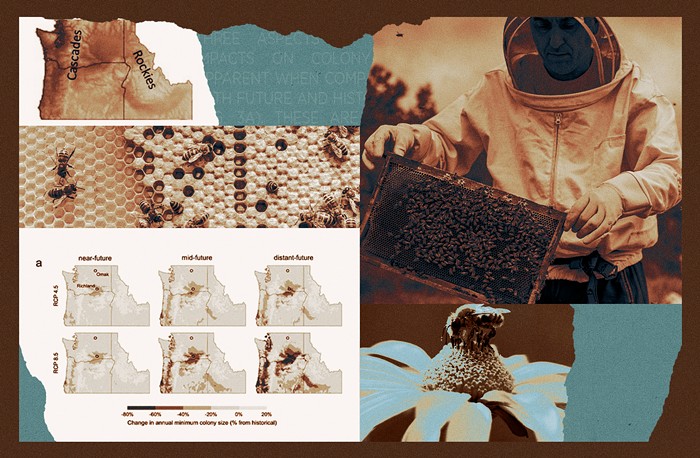
Two weeks ago, my friend’s two-year-old son died in his bed; he never woke up in the morning. His service was this last Saturday. This grief, it has hollowed me out, it has taken my breath away. This is the kind of loss and risk that we cannot negotiate around, or mitigate. It’s just baked-in to the human experience.
Many of the other recent losses we have seen at the collective level—Puerto Rico, Las Vegas—are self-inflicted. Visited by my own grief, I cannot help but see these national tragedies as landscapes of loss and human pain. The hands of mothers, the bodies of babies, the immobile elderly. This is what, in the end, matters most.
What infuriates me is that these self-inflicted wounds come from the self-harm done through the social-collusion of denialism. Denialism of the risks of unregulated firearms. Denialism of the risks of climate warming. Indeed, we have the goddamn tools to create a safer society. We can make different choices, informed by information, evidence, and science, and such choices could dramatically change that landscape of human pain.
But we aren’t making those choices—and we live in a society courting an obscene amount of risk. What is more, the denialism of science and evidence is one-sided in our political system. That’s not a partisan statement, that's a fact-based statement. Do liberals have their own magical thinking problems? Yes. See Marin County and vaccines. But, the denialism of climate change and gun safety is squarely rooted in the Republican party and their donor-base. These interests, and their cash, are hijacking partisan discourse at the very highest level of public decision making. They are putting us all at risk.
Here is where I pivot to my own community and to my frustration within our Seattle discourse. Last week, I sat through most of the University of Washington Philosophy Department’s workshop, “Ethics and Policy: 200 Days into the Trump Administration” and listened to Aseem Prakash (UW Dept. of Political Science, Center for Environmental Politics) and Stephen Gardiner (UW Dept. of Philosophy, Program on Values in Society) talk about climate. In the public q&a after, local weather celebrity Cliff Mass spoke, asking for the speakers to consider how liberal “climate extremists and exaggerators” are to blame for the lack of progress on climate change. Dr. Gardiner responded, rejecting Cliff’s premise by saying “there is a lot of hype about how there is a lot of hype.”
I understand Dr. Mass’s question comes from his own personal belief system regarding how to appropriately talk about climate change, and who gets to talk about it. And, to be sure, we all get to have partisan opinions. However, blaming liberals is not an evidence-based frame for looking at partisan climate rhetoric at the national and international level—despite the rejection of a carbon tax by Washington state voters last fall. Dr. Mass is a hugely popular local meteorologist and public expert. He gives great weather forecasts and does lots of successful public education on regional weather. He has an enormous platform and with that platform comes responsibility, and this is a responsibility to not distort science through a partisan paradigm. Blaming liberals in order to engender a conservative audience costs us, as scientists and as people, down the line. It is a form of social collusion and it is dangerous.
There are some that would say publicly calling out Dr. Mass is unprofessional. I would say that it is necessary. And, seeing that Dr. Mass has called me a “climate extremist” numerous times, on Slog comments and to my face, adding emphatically that “people like you are the real problem,” this is obviously a conversation being borne out publicly in real time. It is necessary because the public needs to see other scientists sticking their neck out and risking public controversy to counter such mischaracterization.
The communication of science, especially climate science, matters. It matters where science denialism, for example distortion on guns and climate, is coming from in the political system. And frankly, worried liberals are not to blame. It is deeply problematic to our public discourse when scientists distort this interface between science and society. Our courtship with these obscene risks comes directly from the economic powers of the gun and oil industries.
Ultimately, the most important question is not who is right, but who suffers the most. This is why communication about climate change is not about science inasmuch as it is about public service and public safety. It’s about the lives of people and the places we call home. It’s about mitigating the risks of this planetary-scale self-inflicted wound. We have so, so, so many things to do, to care for people and mitigate that landscape of human suffering, and we need public experts to put the most important things first.














